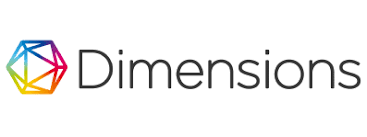Peran Modal Sosial dalam Pendidikan Pesantren di Era Society 5.0
Abstract
Keywords
Full Text:
PDFReferences
Aji, L. B., & Setyarini, M. D. (2020). Modernisasi Pendidikan di Pondok Pesantren Miftahul ‘Amal Jiken, Blora. Journal of Economic Education and Entrepreneurship. https://doi.org/10.31331/jeee.v1i1.1219
Amelia, Y., Yuliansyah, Y., & Winata, A. (2020). Pelatihan peningkatan value ekonomi dan lingkungan pondok pesantren untuk sustainability di era society 5.0. Yumary : Jurnal Pengabdian Kepada Masyarakat , 1(1), 19-24. https://doi.org/10.35912/jpm.v1i1.58
Arifin, S. (2020). PENGEMBANGAN SELF-CONCEPT KHAIRA UMMAH SANTRI PEREMPUAN MENYONGSONG ERA SOCIETY 5.0 PERSPEKTIF PENGEMBANGAN KARIER. Hisbah: Jurnal Bimbingan Konseling Dan Dakwah Islam, 17(1), 33–60. https://doi.org/10.14421/hisbah.2020.171-044
Glaeseret, E., Laibson, D., Scheinkman, J. & Soutter, C. (2000). Measuring trust, Quarterly Journal of Economics, 115, pp. 811–846.
Misztal, B. A. (1999) Informality: social theory and contemporary practice (London, Routledge).
Perdana Putera, F., & Widyana, R. (2020). Peran Penting Dukungan Sosial Orang Tua terhadap Karakter Siswa dalam Menhadapi Era Society 5.0. G-COUNS, 4(2), 296–303
Winter I. 2000. Towards a theorised understanding of family life and social capital. Working paper No. 21, April 2000. Australian Institute of Family Studies.
Woolcock, M. (1999). Managing risk, shocks and opportunity in developing economies: the role of social capital(unpublished paper) (Washington DC, Development Research Group, World Bank).
Woolcock,M. (2000). Managing risk, shocks and opportunity in developing economies: the role of social capital, in: G. Ranis(Ed.) Dimensions of Development (New Haven, CT, Yale Center for International and Area Studies).
Woolcock,M. (2001). The place of social capital in understanding social and economic outcomes, Isuma: Canadian Journal of Policy Research, 2, pp. 11–17.
Woolcock, M. & Narayan, D. (2000). Social capital: implications for development theory, research and policy, World Bank Research Observer, 15, pp. 225–249.
Article Metrics
Abstract has been read : 1852 timesPDF file viewed/downloaded: 0 times
DOI: http://doi.org/10.25273/equilibrium.v9i2.10010
Refbacks
- There are currently no refbacks.

This work is licensed under a Creative Commons Attribution-ShareAlike 4.0 International License.












